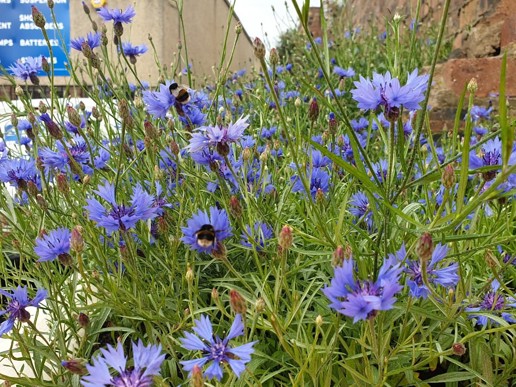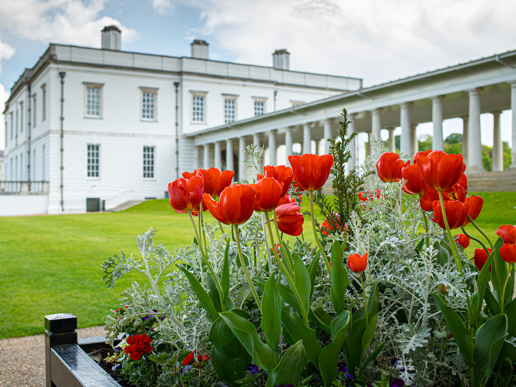Urban Beekeeping at London Metropolitan University
Project Overview:
On behalf of CBRE, Ground Control acquired a contract for planned preventative grounds maintenance and beekeeping at the London Metropolitan site in March 2023.
The grounds maintenance contract was tailored specifically for the needs of CBRE’s client, including maintenance of beehives and specialist urban beekeeping, following the successful completion of numerous tree works and planting projects at the university.
Scope of Works:
The works required significant maintenance to the beehives and surrounding planters, with additional considerations required for the remote rooftop location. Ground Control deployed local, community urban beekeeping specialist The London Beekeeper, to work on the existing beehives located on the University’s roof.
These assessments identified that the bees had died over the winter and the hives were sadly in disrepair. Working closely with The London Beekeeper, CBRE, and the site itself, a proposal was created to repopulate and repair the hives.
To provide the best possible environment for the bee colony to thrive, the planters surrounding the hives were stocked with a range of plants able to supply pollen and nectar throughout the year. These plants included:
- Perovskia Atriplicif, 'Blue Spire'
- Sedum cyaneum, ‘Rosenteppich',
- Euphorbia Characias, ‘Mediterranean Spurge’
- Lavandula, ‘Lavendar'
- Rosmarinus officinalis, ‘Rosemary’

These plants also require low maintenance, which is ideal for the secluded roof-spot where the beehives are placed.
Ground Control Contract Manager Matthew Hardy said:
Naya Vig at CBRE commented:
Projects of this nature highlight the benefits of urban beekeeping, which include:
- Creating a vibrant environment for pollinators, offering bees a surprisingly diverse choice of pollen-bearing plants among parks, playgrounds, gardens, and trees.
- Supporting bee populations, with some sources showing that, in the right conditions, urban bees can pollinate eight times more species than suburban bees and can have higher winter survival rates.
- Demonstrating a wider commitment to sustainability by engaging residents, staff, and adjacent communities in pollinator education programs and honey-themed events.
- Building local food systems by pollinating urban farms and gardens and providing city dwellers with locally produced honey.
- Providing pollination of over 85 different crops.
The Next Steps
The partnership is in the process of designing proposals for engaging the university community in beekeeping, honey production, and now education programmes to raise awareness of the importance of protecting pollinators and encouraging biodiversity.

Biodiversity at the Industrial Estate

London in Bloom – a double win for Ground Control




